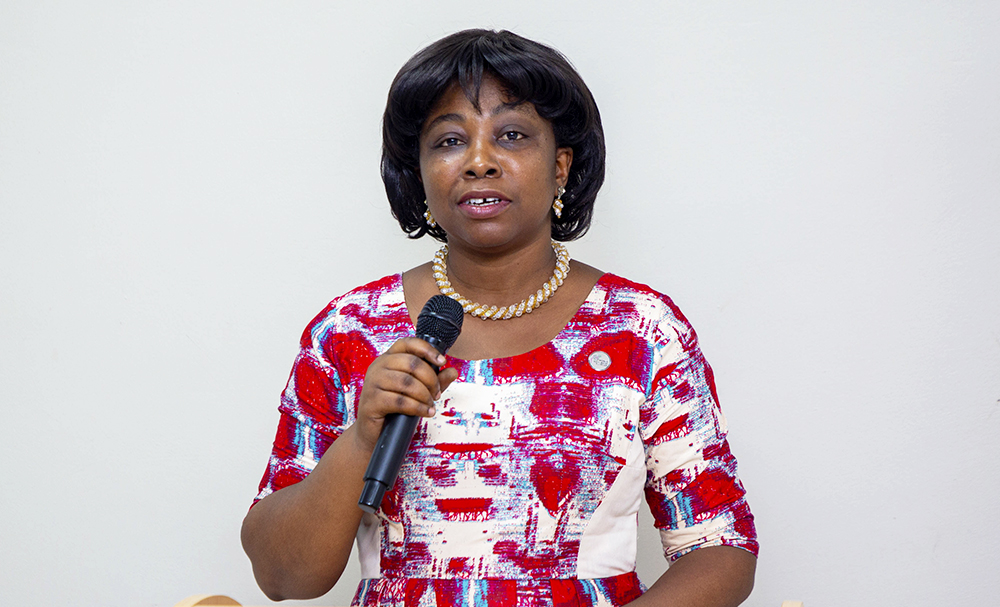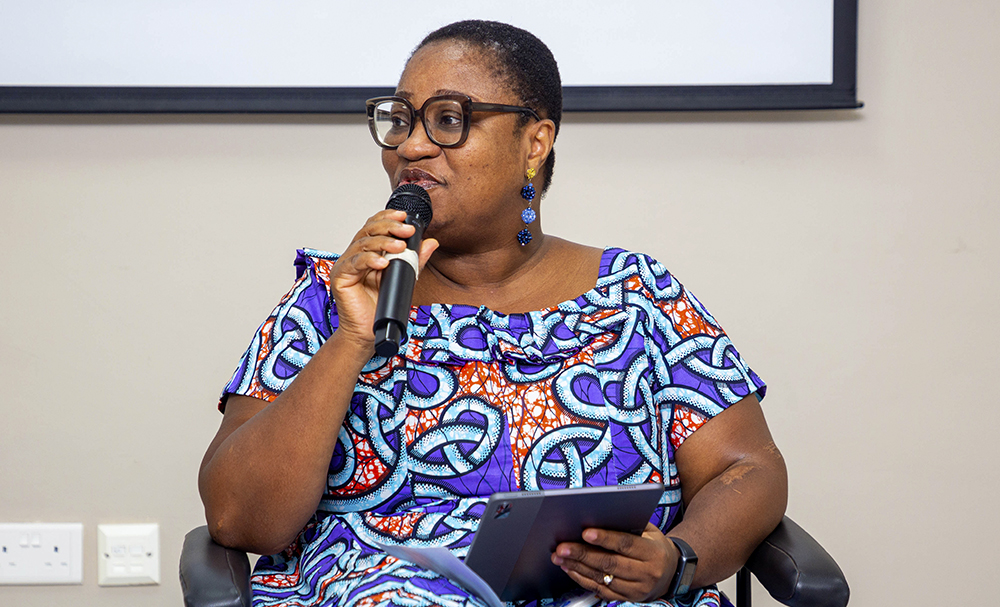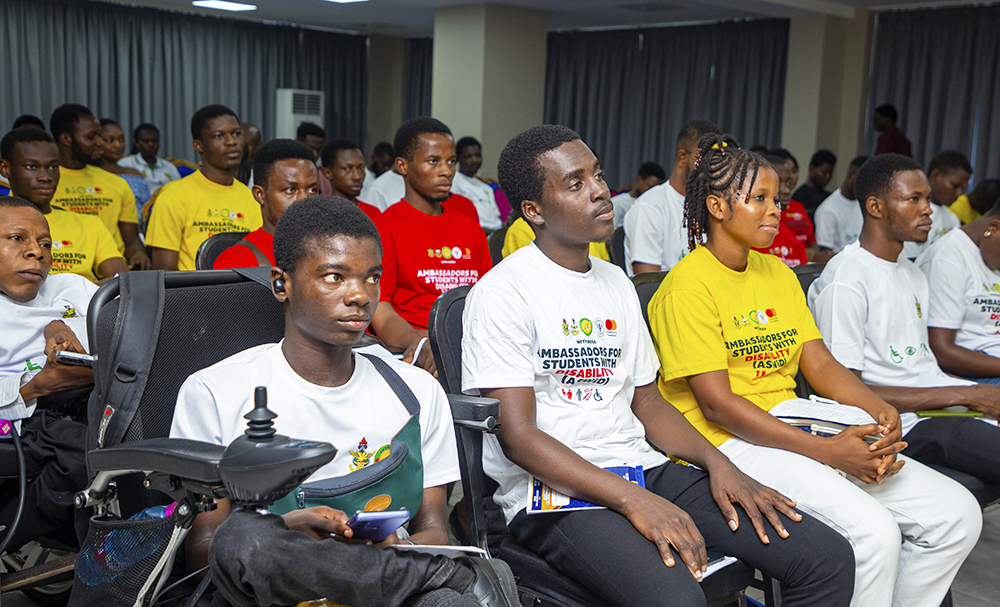The Directorate of Student Affairs (DoSA), in collaboration with the Students with Disability Association (SWDA) at Kwame Nkrumah University of Science and Technology (KNUST), Kumasi, organised the third edition of the Disability Awareness and Advocacy Workshop. This year's event, themed "Inclusivity in Education: Our Collective Responsibility," took place on 5th July 2024, at the Impact Building, KNUST.

Professor Marian Asantewah Nkansah, Deputy Director of DoSA and Chairperson of the event, emphasised the importance of the advocacy programme, stating that its primary goal is to raise awareness within the University Community about the necessity of inclusivity. She highlighted that inclusivity is not just a policy but a practice that must be embraced by every member of the University. Professor Nkansah also noted that the event serves as a platform to celebrate the achievements of students with disabilities and to discuss some of the challenges they face. She expressed her commitment to ensuring that KNUST becomes a model for other institutions in terms of providing equal opportunities for all students.

Dr. (Mrs.) Lucy Afeafa Ry-Kottoh, Chairperson of the Disability Advisory Committee of the University, delivered insights on inclusive education, challenging perceptions by affirming that disability is not a taboo subject but an integral part of diversity. "Disability is not a taboo and people must realise the importance of embracing the idea of living with persons with disabilities," she stressed. She emphasised the need for proactive approaches in integrating students with disabilities into the academic and social fabric of KNUST. Dr. (Mrs.) Ry-Kottoh urged the University Community to embrace inclusive practices and policies that ensure equal access and participation for all students.

Mr. Isaac Owusu, a Senior Lecturer at the Centre for Disability and Rehabilitation Studies at the School of Public Health, provided comprehensive guidance on understanding disability. He outlined the various types of disabilities and discussed common misconceptions. He also emphasised the importance of disability etiquette, offering practical tips on interacting respectfully with persons with disabilities.
Mr. Owusu cited an example, advising attendees to always ask before aiding a person with a disability, as unsolicited help can sometimes be intrusive or unwelcome. He also highlighted the importance of speaking directly to the person with a disability rather than to their companion or interpreter. Additionally, he spoke the significance of using appropriate language, such as "person with a disability" instead of "disabled person," to promote dignity and respect. His presentation heightened awareness and sensitivity among attendees, fostering a more inclusive environment within KNUST.

















